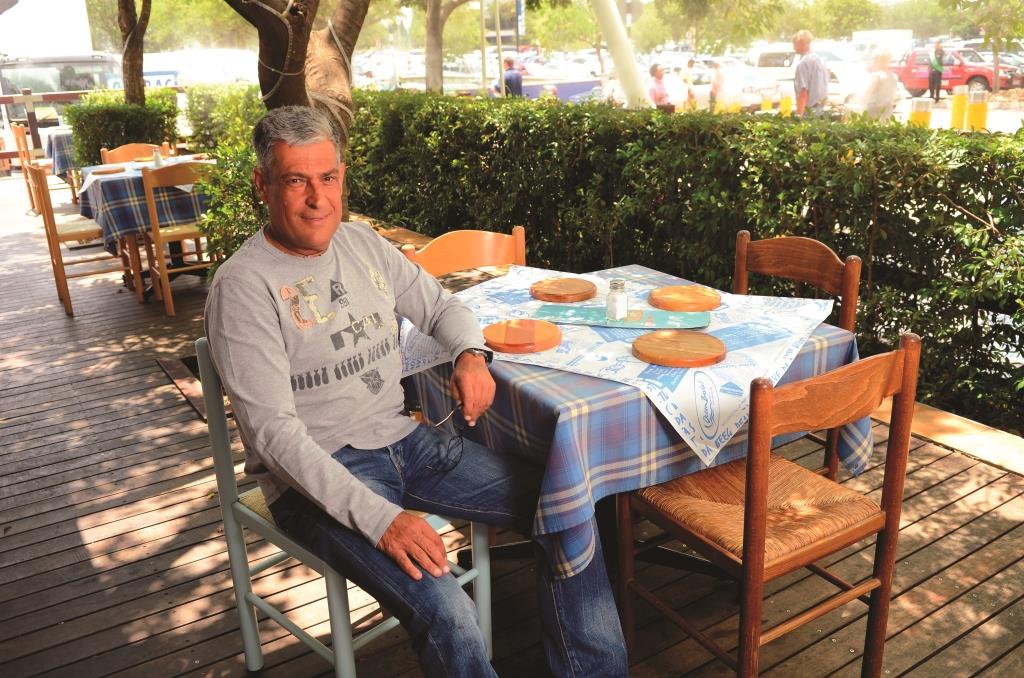When you look at the man, you wonder how Peter ‘Fats’ Lazarides ever acquired his nickname. He has plenty to be pleased about after having started the South African Ocean Basket seafood franchise from scratch. Aside from power cuts, Lazarides says the biggest challenge is managing queues, the waiters and kitchen staff.
“The turnover has been there. I always say people have to eat.”
Another worry is the Fish and Chips outlets that try to tempt weekend diners away from his tables. It’s just one of the many trials he’s experienced during his 18 years in the business.
Lazarides, his brother, George, and a third partner, George Nichas, opened their first Ocean Basket restaurant in Pretoria, sitting a mere 30 people.
Lazarides worked at a supermarket, while he was looking for a place to set up shop. A phone call from his wife alerted him that she had found a place. The only problem was 40 other people were after the lease.
With the simple idea of serving seafood in a pan, in his head, Lazarides set out to talk to the leaser, whom he convinced of the unheard-of idea.
Five months later, on April 12, 1995, the first store opened at Menlyn Park Shopping Center, in Pretoria, but with strict limitations on their five-year lease. The contract stated that the restaurant could only sell one type of wine and two types of cold drinks. No desserts or salads were allowed and the store had shorter opening hours. With the odds stacked against them, the restaurant became a surprise hit. People queued for the fresh seafood and brought along with them their own bread, salads and cold drinks.
“I think it’s just a drive, basically for me it was a drive to do something very successful in my life and it doesn’t mean the first thing I did, turned out to be successful,” says Lazarides.
Their business model was to sell inexpensive seafood in shopping centers surrounded by large numbers of homes.
The knowledge to run this fast-growing franchise didn’t come overnight. Lazarides dropped out of school in grade eight, then tried to return to complete grade 10, but says it was a disaster. He thought he’d be lucky on the third attempt at college to finish grades 11 and 12 but he simply wasn’t interested enough in his studies. Instead, in 1977, he went to sea to his compulsory national service.
This was during South Africa’s apartheid-era conscription, when young men would do their national service and then have around 10 years of call-ups. While with the Navy, he talked his way out of the call-ups and managed to get an exemption to allow a short service of only three years.
Back on land, Lazarides drew on his Grecian roots of running cafés, coffee shops and corner shops.
He dabbled with the idea of running a restaurant, in 1981, while working at an establishment at Sun City holiday resort, in the North West province. He returned to Pretoria to learn two trades—one from his father, who was a carpenter, and the other on how to be a plumber and shop fitter. But he was still confused about what he wanted to do with his life.
Then came the epiphany in Menlyn Park. Ocean Basket was to become an international success story with 165 stores worldwide. He attributes the restaurants’ success to their strict focus on seafood.
The seafood franchise has opened restaurants in Lesotho, Swaziland, Zambia and Mauritius. In late 2012, Nigeria saw its first Ocean Basket open in the upmarket area of Victoria Island, in Lagos.
The partners returned to their Mediterranean roots on the island of Cyprus in 2008, where six stores and a distribution center were opened.
There’s even a high-speed sushi bar at Africa’s biggest international airport in Johannesburg—O.R. Tambo.
There are plans to expand to petrol stations across South Africa. The experiment has begun in Middleburg, south west of Johannesburg, as well as Cyprus. Lazarides hopes to expand the project.
The partners plan to open at least 200 stores by the end of 2014 and another 200 during the following 10 years, by expanding into Ghana, Botswana and Zimbabwe.
The group’s global turnover is around R2 billion ($224.1 million) for the stores and the four warehouses. An Ocean Basket establishment makes, on average, nearly R8.5 million ($952,000) a year, while the setup costs are about R2.5 million ($270,500). Lazarides wants more people to buy into his franchise; he is encouraging them to do so by cutting the setup cost by 20%.
As the seafood retail space gets more competitive with the popping up of many over-the-counter fish-and-chips outlets and other seafood restaurants, Lazarides says this will not put a damper on his expansion plans.
He believes his three-step recipe to success: good food, good service and good price will keep customers returning to Ocean Basket. At least now they don’t need to bring their own salads.
